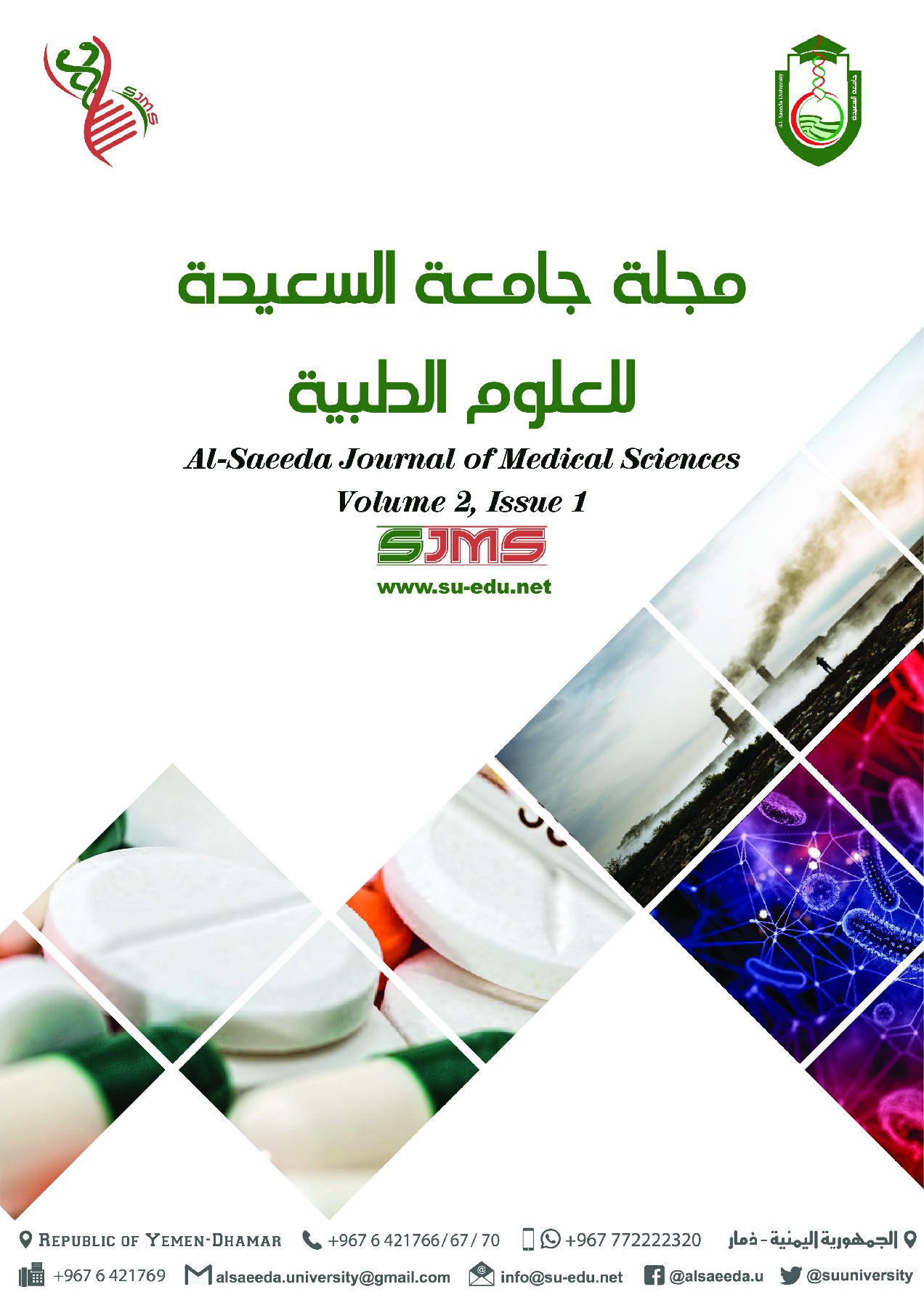
Al-Saeeda Journal of Medical Sciences
Yazarlar: Abdulrahman Y Al-Haifi
Konular:-
Anahtar Kelimeler:-
Özet: Several studies reveal the presence of H pylori in gallbladder tissue but it’s not clear whether the H pylori itself causes gallbladder stone. H pylori can cause severe damage in the stomach and intestine of infected individuals, leading to peptic and duodenal ulcers, as well as gastric cancer. It is plausible that the infection can also damage gallbladder tissue. Objectives:This study aimed to determine the relationship and prevalence between Helicobacter Pylori among Gall Bladder stone. Material and Methods: This descriptive study was conducted at hospitals in Dhamar city/Yemen from February / 2018 to February / 2018, 30 patients with open cholecystectomy enrolled for this study. ELISA H. Pylori was detected and the postoperative Questionnaire was filled witheach patient. Results:The sample common is between (30-40) years by 30%.female is a bigger group represent (93, 3%). patients share housing by 87% with overcrowding and had a habit of fatty food (69, 6%) and spicy food (65, 2%).From all sample; nausea represent( 65,5%) from symptoms of Helicobacter Pylori while feeling bloated represent( 60, 9%) and loss of appetite by(52,2%). (76,7%) of the sample have Helicobacter Pylori represent 23 patients while other (23,3%) don’t infectwith Helicobacter Pylori but had Gall Bladder Stone which represents7 patients. By Binomial test,(77%) of a patient with Gall Bladder Stone infected with Helicobacter Pylori while (23%) did not, means that (99,5%) of appearance the stone at gall bladdercome with Helicobacter Pylori infection in my study. From 23 cases with H. Pylori, infection only 8 get treatment for these bacteria. Conclusion:This study demonstrated that Helicobacter Pylori infection significantlypresent in patientswith Gall Bladder Stones and maybe one of the etiological factors leading to gall bladder stones